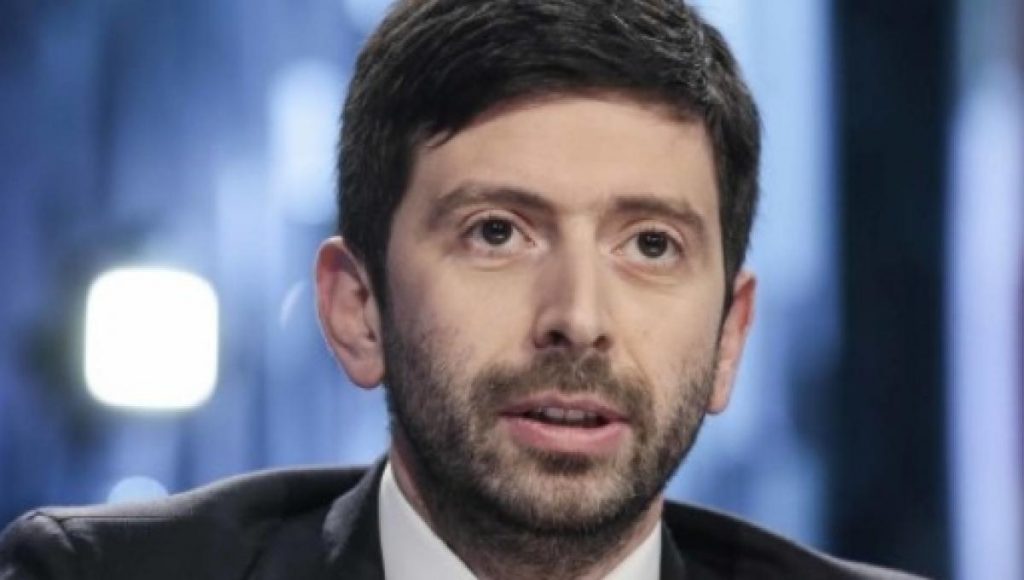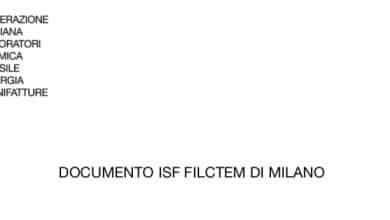
Health Minister Roberto Speranza, during question time in the Chamber, opened up on the hypothesis that a  signing prescriptions for anti-Covid drugs are family doctors, avoiding the involvement of hospital departments and therefore shortening the chain of steps. «The AIFA CTS – he declared – started working on Tuesday in the direction of allowing more direct access to antivirals through general practitioners».
signing prescriptions for anti-Covid drugs are family doctors, avoiding the involvement of hospital departments and therefore shortening the chain of steps. «The AIFA CTS – he declared – started working on Tuesday in the direction of allowing more direct access to antivirals through general practitioners».
A little out of time but "it is a necessary act for the management of a pandemic that is evolving towards an endemic - comments Silvestro Scotti, general secretary of the Fimmg family doctors union - Immediate therapeutic intervention could change the patient's story ». «We have closed the emergency phase. And the picture is that of a decline in vaccine-related immunity coverage. It is clear that the possibility of having therapy, in this situation, makes us play a different game with our most fragile clients". (source the newspaper 7/4/2022).
Two have been authorized so far in Italy oral antivirals for the treatment of coronavirus disease 2019 (COVID-19) in adults who do not require supplemental oxygen therapy and who are at high risk of developing a severe form of COVID-19:
- Paxlovid (PF-07321332/ritonavir) of the Pfizer Europe Company MA EEIG
- Lagevrio (molnupiravir) of the Merck Sharp & Dohme Company
it's a intravenous antiviral for the treatment of COVID-19:
- Veklury (remdesivir) of the Gilead Sciences Company.
To Merck's molnupiravir which reduces hospitalizations by a 30% was added the association nirmatrelvir + ritonavir by Pfizer which reaches a 88% of hospitalizations avoided compared to the placebo group. The Medicines Agency has authorized them on the market for administration to symptomatic patients for no more than 5 days, so as to avoid hospitalization.
To use them, however, you need the indication of the family doctor for the specialist center where the patient must go to obtain the prescription, and from here the medicine arrives at the hospital or local pharmacy.
An absurdity that certainly does not guarantee timely administration: in the light of the Italian situation, times risk being decidedly longer, considering that it takes about two days for the patient to have the swab report, after which he must contact his general practitioner and who in turn will have to get in touch with the infectious diseases department of the hospital, where the drug can be prescribed and dispensed by the hospital pharmacy or on behalf of the hospital. The risk, of course, is wasting time and not being able to administer the drug.
In fact, despite the wide spread of the virus, anti-covid antivirals are largely underused
They must therefore be prescribed quickly and this speed can only be guaranteed by the local area: family doctor and pharmacy. Having them administered only in the hospital is also discriminatory, let's think of the suburbs and all the delocalized centers that cannot quickly access an infectious disease ward ".
 «Underuse of these drugs – highlights Cartabellotta of the Gimbe foundation – is to be attributed to failure to enable family doctors to prescribe them, as well as exclusive dispensing in hospital pharmacies and not in local ones. Considering that the 2022 agreement for the supply of Paxlovid amounts to 600,000 treatments (for a total of 400 million euros), in the absence of an adequate organizational model capable of guaranteeing the necessary timeliness of the prescription, there is a risk that stocks remain unused as has already happened for monoclonal antibodies»
«Underuse of these drugs – highlights Cartabellotta of the Gimbe foundation – is to be attributed to failure to enable family doctors to prescribe them, as well as exclusive dispensing in hospital pharmacies and not in local ones. Considering that the 2022 agreement for the supply of Paxlovid amounts to 600,000 treatments (for a total of 400 million euros), in the absence of an adequate organizational model capable of guaranteeing the necessary timeliness of the prescription, there is a risk that stocks remain unused as has already happened for monoclonal antibodies»
As reported by AIFA report Monitoring Antivirals for COVID-19 of March 25, 2022, of the antiviral treatments available for outpatients, 4,052 therapies were started with Paxlovid (in 42 days), 12,149 with Molnupiravir (in 83 days) and 5,100 with Remdesivir (in 83 days). Too small numbers, compared to the indications of these drugs.
Pfizer and Paxlovid antivirals were distributed to the Regions for 11,200 treatments. Consider that 600,000 cycles of the Pfizer drug have been purchased from Italy. Yet, according to the latest Aifa monitoring of March 8, just 2,072 of these have been used.
The idea of saving public resources, declared Guido Rasi, using one treatment less than one more has no logical support since we are talking about pre-purchased drugs. Better to risk using one unnecessarily than maybe not using it where it would be necessary.
If the solution proposed by Minister Speranza is reached, new therapeutic perspectives will open up, with fewer hospitalizations and fewer deaths
Related news: AIFA update. Report no. 8 Monitoring Antivirals for COVID-19
The Potential of Intentional Drug Development
South-East Tuscany ASL. A Task Force to Control Pharmaceutical Spending





